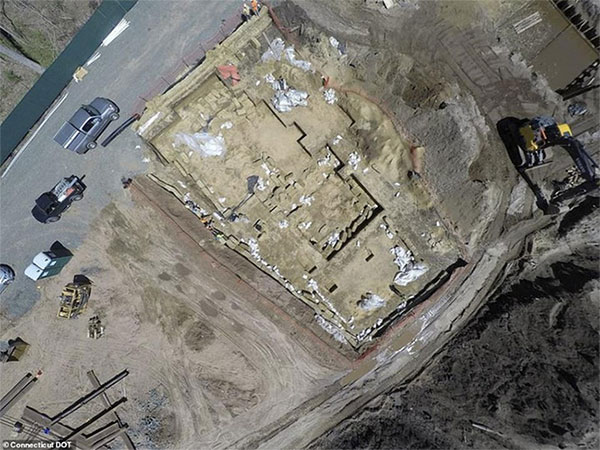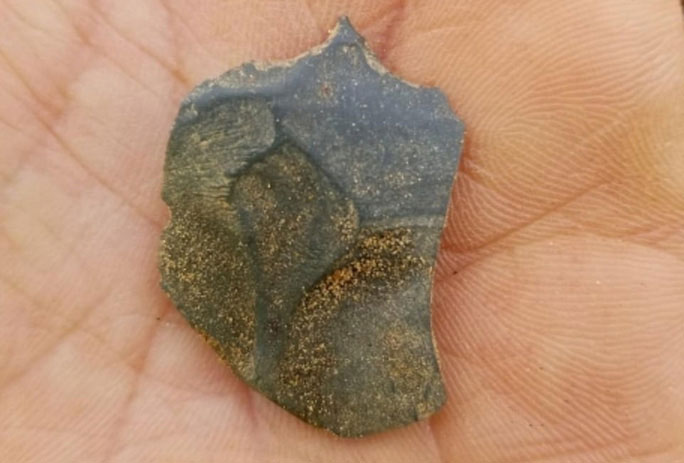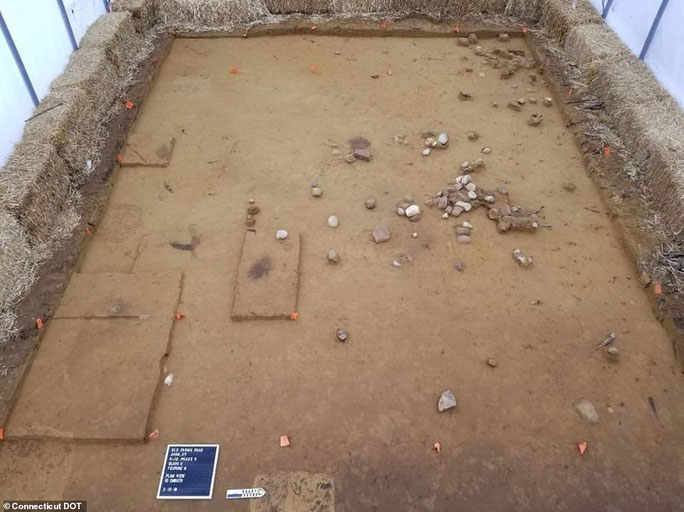Digging a road to build a bridge, lost in the 'ghost village' missing 12,500 years
The 12,500-year-old "ghost village" is one of the oldest human settlements ever discovered. After more than a millennium buried, the settlement with fairly square and neatly built houses retains many of the ancient walls, traces of fire stoves, fireplaces and countless rough labor tools. Profile.

Construction site bridges the archaeological site by the unexpected discovery of the roadwork workers - (photo: CONNECTICUT DOT)
Archaeologist Catherine Labiadia from the State Office of Conservation of History, said the opportunity to see such an ancient site was "only one in its lifetime" . Luckily, the old village was discovered when the workers working at the project chaired by the Ministry of Transport were asked to dig deeper to make the bridge more solid. The long period of time caused the entire structure to be buried deeper than most other archaeological sites.

15,000 pieces of artifacts were unearthed in the old village - (photo: CONNECTICUT DOT).
15,000 different artifacts have been unearthed and given scientists a glimpse into the lives of prehistoric humans. According to Professor Karl Huntchings, an anthropologist from Thompson Rivers University (Canada), the research leader, the inhabitants of the "ghost village" are professional hunters. The method of choice was to make sharp, firm javelins that the hunter could use to launch and defeat large prey at a distance. It is the small cracks in the nose that show how it is used. The structure of the javelin has also been improved to an optimal level, allowing it to be thrown faster and farther.
What the previous 12,500 ancestors hunted might be mammoths or other ice age giants.

Part of the archaeological scene - (photo: CONNECTICUT DOT).
In addition, the evidence shows that these hunters have a genuine strategy of finding a source of life, which is to take advantage of the natural terrain to put their prey into a weak position. In contrast, it was the terrain and the versatility of the ancient javelins that made it possible for hunters to attack prey at a distance, flexibly moving when hunting. These exquisite javelins were the precursors of the bow and arrow later.
Currently researchers have not determined the amount of population once lived in this ancient village. The excavation process is still ongoing.
- The mysterious village of 2,000 people suddenly evaporates without a trace
- The mysterious village "appears" in the ghost forest at the bottom of the sea
- Strange: The ghost ship lost 200 years suddenly appeared on the beach
- The mysterious village 'appears' in the middle of the ghost forest in the sea
- The most original ancient village of Phu Tang
- Haunted bridge and mystery about creatures half human, half goat
- Video: China built 1,350 tons of bridges in 43 hours
- The highest bridge in the world on the Himalayan peak
- Found a ghost train containing treasures 70 years ago
- Detect the missing ship at the Golden Gate Bridge
- The road often happens so strange that the drivers do not dare to pass
- Impressive bridges in the world
- Nghe An: Digging the foundation of the house with the treasure of ancient coins
- See the most beautiful bridges in Vietnam
 Discovered an ancient centipede fossil 99 million years old
Discovered an ancient centipede fossil 99 million years old Discovered bat-like dinosaurs in China
Discovered bat-like dinosaurs in China Discovered a 200-year-old bronze cannon of the coast
Discovered a 200-year-old bronze cannon of the coast Discover 305 million-year-old spider fossils
Discover 305 million-year-old spider fossils